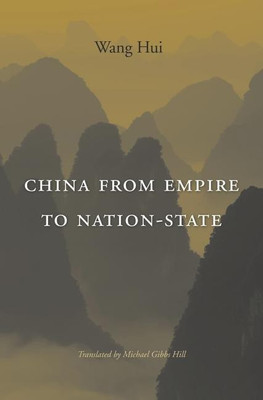China from Empire to Nation-State(English, Hardcover, Wang Hui)
Quick Overview
Product Price Comparison
This translation of the Introduction to Wang Hui's Rise of Modern Chinese Thought (2004) makes part of his four-volume masterwork available to English readers for the first time. A leading public intellectual in China, Wang charts the historical currents that have shaped Chinese modernity from the Song Dynasty to the present day, and along the way challenges the West to rethink some of its most basic assumptions about what it means to be modern. China from Empire to Nation-State exposes oversimplifications and distortions implicit in Western critiques of Chinese history, which long held that China was culturally resistant to modernization, only able to join the community of modern nations when the Qing Empire finally collapsed in 1912. Noting that Western ideas have failed to take into account the diversity of Chinese experience, Wang recovers important strains of premodern thought. Chinese thinkers theorized politics in ways that do not line up neatly with political thought in the West-for example, the notion of a "Heavenly Principle" that governed everything from the ordering of the cosmos to the structure of society and rationality itself. Often dismissed as evidence of imperial China's irredeemably backward culture, many Neo-Confucian concepts reemerged in twentieth-century Chinese political discourse, as thinkers and activists from across the ideological spectrum appealed to ancient precedents and principles in support of their political and cultural agendas. Wang thus enables us to see how many aspects of premodern thought contributed to a distinctly Chinese vision of modernity.


